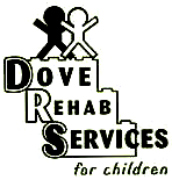Activities that intentionally combine gross motor skills with fine motor activity influence attention. Key pieces being woven together in the photo below include resistive exercise for the core muscles of his trunk. These muscles are being stimulated by the sway of the swing as he holds on to the swing and moves through space. Body awareness is also being activated as he positions his entire body to point
Learn more
What is Resistive Exercise and Heavy Work? Resistive exercise is muscle action that is opposed by enough force to increase strength. “Heavy Work” is the combination of resistive exercise with activities such as those that are shown in the photos below. Combining resistive exercises into Heavy Work activities, activates key chemical actions throughout the brain and its pathways. When these pathways are activated with sufficient
Learn more
Practicing for success with Reading Comprehension Math ● Science ● Technology Task Organization is an “executive function” that is organized at the highest level within the cortex of the brain. Executive Functions have been described as a set of mental skills that help you get things done. According to WebMD examples of executive functions include: Managing time Paying attention Switching focus Planning and organizing Remembering
Learn more
Heavy work activities are often used to improve postural control and upper body stability. The heavy work helps to modulate attention and to prepare the upper body to support follow up fine motor skills. However, physioball walk outs and other resistive activities commonly used for heavy work can easily become routine, resulting in decreased attention to task and postural control. We found a discounted
Learn more
(Try dressing, eating, or washing up without them) Most of the children I have treated over the years who have had coordination deficits generally tended to have difficulty using hand and finger motions as well. These difficulties often caused problems with daily living activities such as dressing, manipulating clothing fasteners (buttons, zippers, shoe laces, etc.), using utensils, grooming and hygiene. Planning developmentally appropriate projects
Learn more
Developing proficiency in hand function skills typically requires the support of two distinct sensory processing systems. While components of the visual processing system alert us to where and what the objects are that we will be working with, the sensory receptors in the joints, skin and muscles of the somatosensory system alert us to touch and movement sensations occurring as the objects are manipulated..
Learn more
Attention is the act of concentrating on one or more aspects of an environmental task that requires the ability to multi-task sensory processing input. External Controls of Attention Sensory input from the environment are comprised of events that can generally be manipulated to some degree and can be referred to as External Controls. These features can usually be heightened or minimized to help
Learn more
Attention is the act of concentrating on one or more aspects of an environmental task that requires the ability to multi-task sensory processing input. Sensory influences in the environment for each of our sensory systems contribute to attention. These influences can be easily tweaked to improve attentive behaviors. For example:
Attention is the act of concentrating on one or more aspects of an environmental task that requires the ability to multi-task sensory processing input. Types Of Attention Children who have sensory processing disorders often have deficits with attending behaviors as well. As caregivers, we all primarily tend to wish for sustained, focused on task behavior during self-care, school, and play. However, there
Learn more
